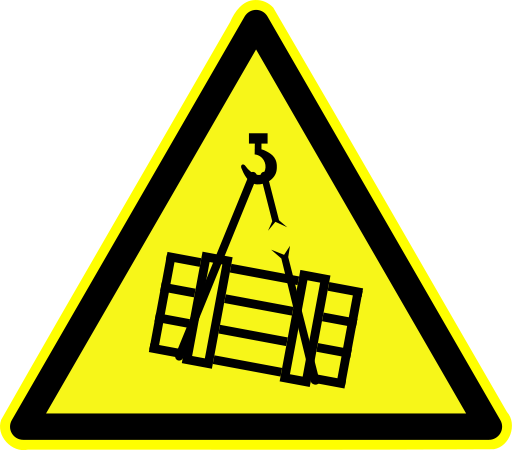|
Next week hosts two key milestones, neither one of which portend good news for stocks. The 4th Quarter and full year 2018 GDP report finally lands on February 28, 2019 at 8:30 am ET. (We missed the advance estimate that should have been released on January 29, 2019, due to the government shutdown.) March 1, 2019 marks the date that we hit the Debt Ceiling again. The Treasury Department must use “extraordinary means” to pay bills until Congress raises the Debt Ceiling and allows the department to borrow more money – something that has become far too ordinary in today’s over-leveraged world. So, how bad will next Thursday’s GDP report & Debt Ceiling be? Is there a chance that the news will be better than expected? GDP Report Feb. 28, 2019 at 8:30 am ET. Last year, the 4th quarter GDP report was only slightly lower than the 3rd quarter. But it sparked a 3-month Wall Street rout at the beginning of 2018 that became the motif for the year. In 2018, the Dow Jones Industrial Average sank by 6%, while the NASDAQ Composite Index shed 4% of its value. On February 28, 2019, the 4th Quarter 2018 GDP growth is predicted to come in far lower than the growth in the 3rd Quarter, which was 3.4%. GDP NOW (The Atlanta Federal Reserve’s forecasting) pegs 4th Quarter 2018 GDP growth at 1.4%, while the New York Federal Reserve Bank projects that growth will be 2.5%. That spread is wide enough to be basically unusable. However, both are substantially lower than the 3rd Quarter 2018 GDP – something investors are not going to be happy with. So, unless there is a big upside surprise in these numbers, March could start off with an implosion. Forecasts have 2019 GDP growth at 2.3%, compared to 2018 full year growth of 3.0%. 2018’s tax cut helped corporations quite a lot. However, this year in order to show growth, business is tasked with selling more without the tax boost. Wall Street insiders are well aware of this… 2/3rds of business economists surveyed by Bloomberg in September of 2018 believed that the U.S. will enter a recession over the next 24 months – before the end of 2020, but not in 2019. The last two recessions cost investors more than half of their nest egg, and the next one looks to be as bad or worse. “When it comes, the next crisis and recession could be even more severe and prolonged than the last,” Nouriel Roubini and Brunello Rosa wrote in an Op-Ed for The Guardian last fall. Click to access their full blog and rationale. Asset prices and debt are even higher than they were before the real estate bubble popped in the Great Recession. It’s important to remember that politicians and the people they appoint never predict a recession. If you wait for the headlines that the economy is in trouble, it will be too late to protect yourself. Debt Ceiling March 1, 2019. As of February 22, 2019, the U.S. public debt is over $22 trillion. Our nation will have to borrow more money to pay our debt and budget obligations this year. However, the Treasury Secretary will not be able to borrow more money after March 1, 2019, until Congress raises the Debt Ceiling. In 2018, this was a non-issue due to a surprising move from the Republican President and Democratic leaders. On February 9, 2018, The President signed the Bipartisan Budget Act into law, after reaching across the aisle to cut a deal with the Democrats. This averted a review of the U.S. AAA sovereign credit rating. Both Fitch Ratings and Moody’s Investor Services have indicated that the U.S. debt is too high for a AAA rating, but have been giving the U.S. a pass due to the dollar being the reserve currency and our ability to control our own currency. So, will there be a Debt Ceiling Crisis and a Downgrade? You won’t hear much about the Debt Ceiling until late summer/early fall, even though Treasury Secretary Mnuchin will begin running the U.S. government like a “piggy bank” (his words) next week. The tax income will provide the necessary capital to pay bills for a few months. If the Administration cuts a deal with Congress to raise the Debt Ceiling before we run out of money, then chances are good that the U.S. will keep its AAA rating. Moody’s indicated on December 12, 2018 that rating pressures might emerge in the coming years due to the rising debt burden and “diminishing debt affordability.” However, the agency believes that “the US will increasingly rely on its exceptional economic strength and the unique roles of the dollar and Treasury bond market in the global financial system to preserve its Aaa credit profile.” Investors have grown accustomed to having a Debt Ceiling crisis every other fall, and to having leaders raise the Debt Ceiling at the last minute. As dysfunctional as this is, as long as more debt is issued and bills are paid, Wall Street won’t freak out. In the event that Secretary Mnuchin runs out of resources before the Debt Ceiling is raised, Fitch Ratings could be the one to downgrade the U.S. credit. Fitch’s analyst and economist Charles Seville noted on January 9, 2019 that the government shutdown shows that “there is a problem with the coherence of policymaking in the U.S.” A downgrade would be negative for stocks and positive for gold, just as it was in August/September of 2011, when Standard and Poor’s downgraded the U.S. credit from AAA to AA+. The bottom line on all of these events, and many more economic headwinds on the horizon, is that this business cycle is starting to show its age. If you don’t want to get caught in the maelstrom, it’s time to get a second opinion on just how safe and secure your nest egg is. As John F. Kennedy said, “The time to fix the roof is when the sun is shining.” Are You Interested in Learning The Thrive Budget and The ABCs of Money that we all should have received in high school? Join No. 1 stock picker Natalie Pace at a 3-day Investor Educational Retreat. Register for the Colorado Retreat in April 2019 now. Make sure that your financial house is secure enough to withstand the economic storms that are on the horizon. A diversified, hot plan that is annually rebalanced and underweights the over-leveraged companies and municipalities is your best defense against a market downturn. Sadly, most people are not diversified, are heavily invested in companies that are drowning in debt, and are still using Buy and Hope, instead of Annual Rebalancing and Modern Portfolio Theory. (Many broker-salesmen say they are using MPT; few are, however.) That’s why your first and best step is to Know What You Own. If you’re interested in an unbiased 2nd opinion, which includes a report of what you own, outlining areas of strength and weakness in your current plan, alongside a personalized sample nest egg pie chart, email [email protected]. Other Blogs of Interest
2019 Investor IQ Test The State of the Union CBD Oil for Sale. The High Cost of Free Advice. Apple's Real Problem in China: Huawei. 2019 Crystal Ball. 2018 is the Worst December Ever. Will the Feds Raise Interest Rates? Should They? Learn what you're not being told in the MSM. Why FANG, Banks and Your Value Funds Are in Trouble. When the Santa Rally is a Loser, the Next Year is a Bigger Loser. Russia Dumps Treasuries and Buys Gold OPEC and Russia Cut Oil Production. Trade Deficit Hits an All-Time High. Wall Street Plunges 800 Points. How to Protect Yourself. Rebalance and Get Safe in December. Here's Why. The Best Investment Decision I Ever Made. Thanksgiving 2018 Stocks Losses. Black Friday Sales. Get a 2nd Opinion on Your Current Investing Strategy. What's Safe for Your Cash? FDIC? SIPC? Money Markets? Under the Mattress? The Real Reason Stocks Fell 602 Points on Veterans Day 2018. Will Ford Bonds Be Downgraded to Junk? 6 Risky Investments. 12 Red Flags. 1 Easy Way to Know Whom to Trust With Your Money. Whom Can You Trust? Trust Results. October Wipes Out 2018 Gains. Will There Be a Santa Rally in 2018? The Dow Dropped 832 Points. What Happened? Bonds are In Trouble. Learn 5 Ways to Protect Yourself. Interest Rates Projected to Double by 2020. 5 Warning Signs of a Recession. How a Strong GDP Report Can Go Wrong. Should I Invest in Ford and General Electric? Important Disclaimers Please note: Natalie Pace does not act or operate like a broker. She reports on financial news, and is one of the most trusted sources of financial literacy, education and forensic analysis in the world. Natalie Pace educates and informs individual investors to give investors a competitive edge in their personal decision-making. Any publicly traded companies or funds mentioned by Natalie Pace are not intended to be buy or sell recommendations. ALWAYS do your research and consult an experienced, reputable financial professional before buying or selling any security, and consider your long-term goals and strategies. Investors should NOT be all in on any asset class or individual stocks. Your retirement plan should reflect a diversified strategy, which has been designed with the assistance of a financial professional who is familiar with your goals, risk tolerance, tax needs and more. The "trading" portion of your portfolio should be a very small part of your investment strategy, and the amount of money you invest into individual companies should never be greater than your experience, wisdom, knowledge and patience. Information has been obtained from sources believed to be reliable however NataliePace.com does not warrant its completeness or accuracy. Opinions constitute our judgment as of the date of this publication and are subject to change without notice. This material is not intended as an offer or solicitation for the purchase or sale of any financial instrument. Securities, financial instruments or strategies mentioned herein may not be suitable for all investors. Comments are closed.
|
AuthorNatalie Pace is the co-creator of the Earth Gratitude Project and the author of The Power of 8 Billion: It's Up to Us, The ABCs of Money, The ABCs of Money for College, The Gratitude Game and Put Your Money Where Your Heart Is. She is a repeat guest & speaker on national news shows and stages. She has been ranked the No. 1 stock picker, above over 830 A-list pundits, by an independent tracking agency, and has been saving homes and nest eggs since 1999. Archives
July 2024
Categories |









 RSS Feed
RSS Feed